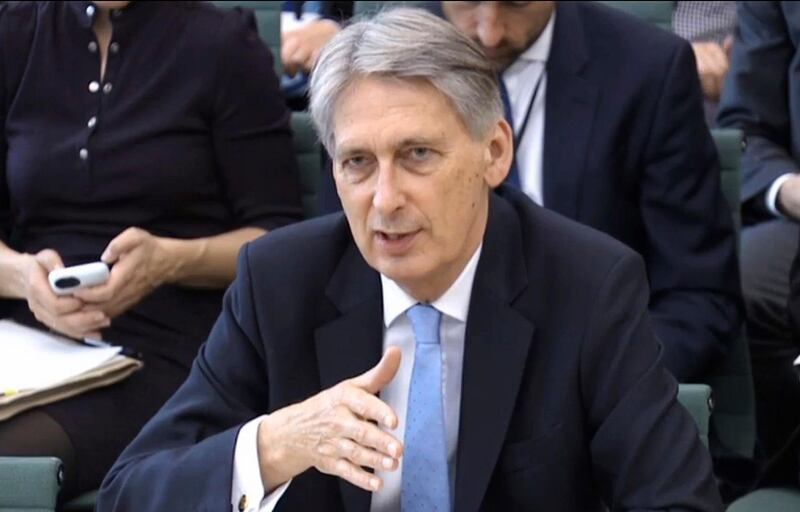Britain's chancellor Philip Hammond sought to quell accusations from within his Conservative Party that he is taking too soft an approach to Brexit and said the European Union represented “the enemy” in the negotiations.
Hammond, who has come under increasingly hostile fire from supporters of a tough approach to splitting Britain from the EU, told Sky News television that it was time for the Conservatives to end their in-fighting over the Brexit talks.
“I understand that passions are high, I understand that people have very strong views about this, but we are all going to the same place, we all have the same agenda,” he said in an interview on the sidelines of International Monetary Fund meetings in Washington.
“The enemy, the opponents, are out there on the other side of the table. Those are the people that we have to negotiate with. We have to negotiate hard to get the very best deal for Britain,” Hammond said.
He subsequently apologised for his comments on Twitter, admitting it was a "poor choice of words".
In an interview today I was making the point that we are united at home. I regret I used a poor choice of words (1/2).
— Philip Hammond (@PhilipHammondUK) October 13, 2017
We will work with our friends and partners in the EU on a mutually beneficial Brexit deal #noenemieshere (2/2).
— Philip Hammond (@PhilipHammondUK) October 13, 2017
Hammond infuriated pro-Brexit newspapers this week and was criticised by some Conservatives including former chancellor Nigel Lawson for not agreeing to spend money now on preparations for the possibility of Britain leaving the EU without a deal.
_______________
Read more:
[ Britain and EU clash over who takes next Brexit step ]
[ The EU's more pragmatic and sensible approach to Brexit is overdue and welcome ]
_______________
Speaking to media in Washington on Friday, Hammond declined to say whether he would vote for Brexit if there were a second referendum. Hammond campaigned for Britain to remain part of the EU ahead of the June 2016 vote.
Echoing Prime Minister Theresa May’s own reticence on the issue, Hammond declined to say how he would vote if another referendum were held now. “We’ve had the referendum,” he told the BBC. “You know how I voted in it.”
Earlier this week May declined to answer a similar question, stoking concerns among Brexit supporters that she is not fully committed to taking Britain out of the EU.
On Thursday May’s spokeswoman said the Prime Minister had full confidence in Hammond.







